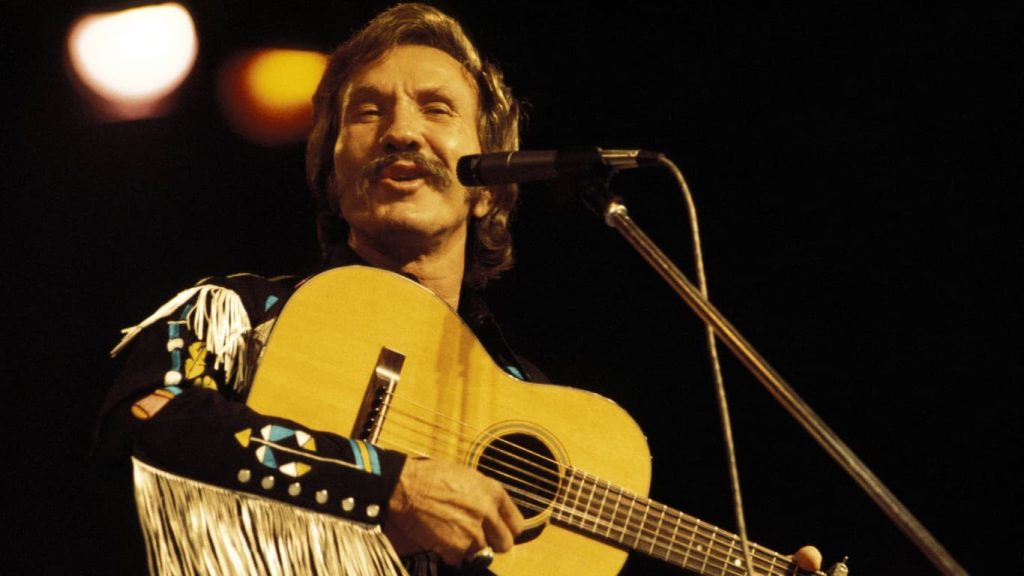
A Heartrending Ballad of Loss, Faith, and a Son’s Love
Marty Robbins’ deeply moving ballad, “The Master’s Call,” released in 1959, quickly resonated with audiences, climbing to number 11 on the Billboard Country Singles chart. This poignant narrative, delivered with Robbins’ signature heartfelt baritone, unfolds a story of profound grief intertwined with unwavering faith, painting a vivid picture of a son grappling with the sudden loss of his beloved father, a dedicated country preacher.
The genesis of “The Master’s Call” lies in the creative mind of Marijohn Wilkin, a prolific songwriter known for her ability to tap into the deepest human emotions. Wilkin, who also penned classics like “Long Black Veil” and “Waterloo,” crafted a narrative that speaks to the universal experience of losing a parent and the solace that faith can offer in such dark times. It’s said that Wilkin was inspired by the stories of rural preachers and the profound impact they had on their communities, often serving not just as spiritual guides but as pillars of strength and wisdom.
Marty Robbins, already a well-established star with hits like “El Paso” and “A White Sport Coat (And a Pink Carnation),” brought a unique gravitas to the song. His delivery, marked by a gentle sincerity and a touch of melancholy, perfectly captured the raw emotion of the lyrics. You can almost hear the tremor in his voice as he sings of the son’s devastation upon finding his father still and silent, his Bible lying open beside him. The imagery is stark and unforgettable: “His hands were folded across his chest, his eyes were closed in sleep,” painting a picture of peaceful finality that belies the storm raging in the son’s heart.
The beauty of “The Master’s Call” lies in its layered meaning. On the surface, it is a lament for a lost father, a testament to the deep bond between a parent and child. The son’s immediate reaction is one of profound sorrow and a sense of irreplaceable loss. He reflects on his father’s unwavering dedication to his calling, the countless sermons delivered, the many souls he touched with his words. This paints a beautiful portrait of a life lived in service and faith.
However, the song transcends simple mourning. As the narrative progresses, a sense of understanding and acceptance begins to dawn. The open Bible becomes a central symbol, suggesting that the preacher was called away while still engaged in his sacred duty. The lyrics imply that the “Master,” in this context, is divine, calling his faithful servant home. This offers a powerful message of comfort and hope, suggesting that death, for those of faith, is not an end but a transition to a higher realm. The son, though heartbroken, finds solace in the belief that his father has answered a higher calling, a call that no earthly bond could supersede.
The arrangement of the song further enhances its emotional impact. The simple, understated instrumentation, often featuring acoustic guitar and gentle harmonies, allows Robbins’ voice and the power of the lyrics to take center stage. There are no grand flourishes or dramatic embellishments, just a raw and honest portrayal of grief and faith. This simplicity contributes to the song’s timeless quality, allowing it to resonate with listeners across generations.
“The Master’s Call” wasn’t just a song; it was an experience. It tapped into the deep wellspring of human emotion, reminding listeners of their own experiences with loss and the comfort that can be found in faith and cherished memories. It spoke to the enduring power of family bonds and the profound impact that a life lived with purpose can have. Even today, decades after its release, “The Master’s Call” remains a poignant and powerful reminder of love, loss, and the enduring strength of the human spirit. It stands as a testament to Marty Robbins’ ability to not just sing a song, but to tell a story that touches the very core of our being. The song was featured on the album “Gunfighter Ballads and Trail Songs,” although it carried a different emotional weight compared to the more adventurous narratives found on that iconic record. It offered a moment of quiet reflection amidst tales of cowboys and outlaws, a reminder of the deeper, more personal stories that shape our lives.